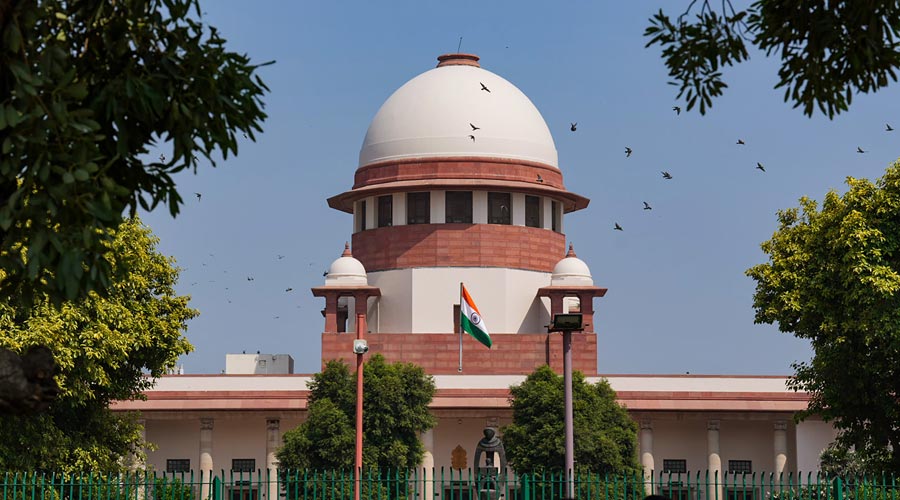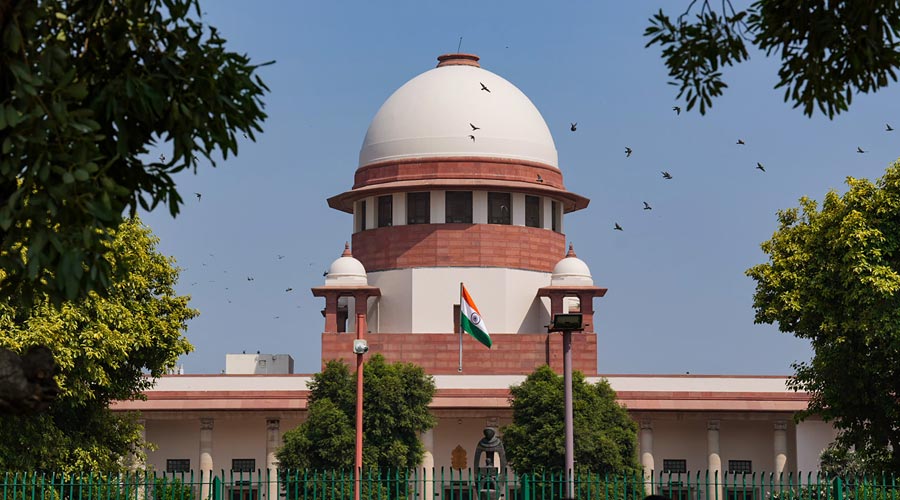Chief Justice D.Y. Chandrachud said on Friday that “no case is too small” and asked: “If we do not act in matters of personal liberty and grant relief, then what are we doing here?”
On Wednesday, law minister Kiren Rijiju, at odds with the Supreme Court over the appointment of judges, had told Parliament that the apex court should not concern itself with bail pleas and “frivolous PILs” when the pendency of cases is so high.
He had suggested that the top court hear constitutional matters instead, views he has been airing on public forums lately.
Rijiju has also spoken in favour of the National Judicial Appointments Commission, which was struck down as unconstitutional by the Supreme Court in 2015.
While ordering the release of a man, Iqram, sentenced to 18 years in jail in connection with cases of electricity theft in Uttar Pradesh, the court said the crime could not be elevated to the level of murder. Iqram was released as he had already been in jail for three years.
“No case is too small for the Supreme Court and no case is too big because we have to answer the call of conscience and the cry of liberty of our citizens. That is why we are here and these are not one-off cases. If we do not act in matters of personal liberty and grant relief, then what are we doing here?” CJI Chandrachud observed.
“You cannot elevate the theft of electricity to that of murder,” the bench observed.
CJI Chandrachud said the apex court would intervene whenever there was miscarriage of justice; otherwise it would be failing in its duty to protect the constitutional right of liberty guaranteed under Article 21 and the court’s power to pass appropriate orders under Article 136 of the Constitution.
“We are then acting in breach of Article 136 of the Constitution (if the court does not intervene).… When you sit here and burn the midnight oil, you realise that every day there is another one like this (Iqram case),” Justice Chandrachud remarked.
Under Article 136 the Supreme Court can entertain any appeal against any judgment passed by any court or tribunal.
A trial court in Uttar Pradesh had sentenced Iqram to two years’ imprisonment in each of nine cases of power theft. The Hapur court had heard a bargain application moved by Iqram. Section 265B of the CrPc allows an accused to move an application admitting their guilt, which may entitle them to lesser punishment.
Further, when a person is convicted multiple times as part of the same trial, as Iqram was, the punishment is usually awarded to run concurrently. This means Iqram should have spent just two years in jail, but the trial court interpreted the provision to say that he should spend 18 years in jail.
Iqram moved Allahabad High Court, which dismissed his plea, following which he approached the Supreme Court.
The apex court took the assistance of senior advocate and former Madras High Court judge S. Nagamuthu, who said the convict should spend only two years in jail and not 18 years, as the sentences in the nine cases must run concurrently.
CJI Chandrachud passed an order directing the release of Iqram, saying: “The fact of the present case provides a glaring instance… indicating a justification for this court to exercise its jurisdiction as a protector of the fundamental right to life and personal liberty inherent in every citizen.
“The right to personal liberty is an inalienable right. In addressing the grievance of citizens, the Supreme Court performs its duty. Not more and not less. If the court were not to do so then there would be serious miscarriage of justice of the nature which has arrived in the present case. If it is allowed to persist, the voice of the citizens whose liberty has been abrogated would receive no attention.
“The intervention by this court to protect the liberty of the citizens is founded on sound constitutional principles embodied in Article 136 of the Constitution. The right to personal liberty is a precious and inalienable right recognised by the Constitution.”












